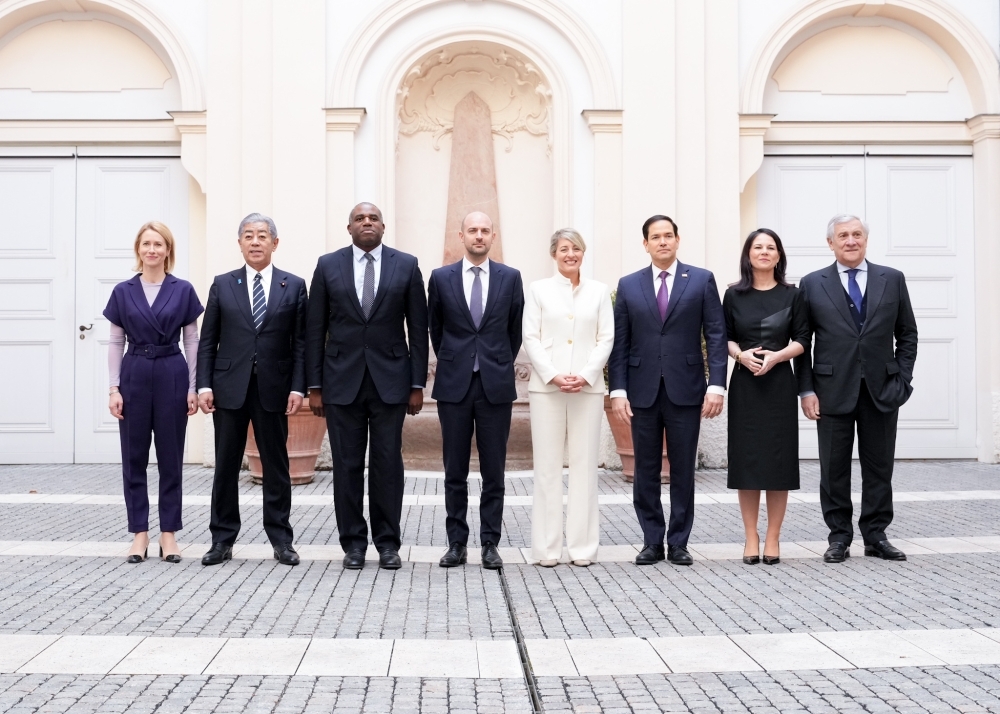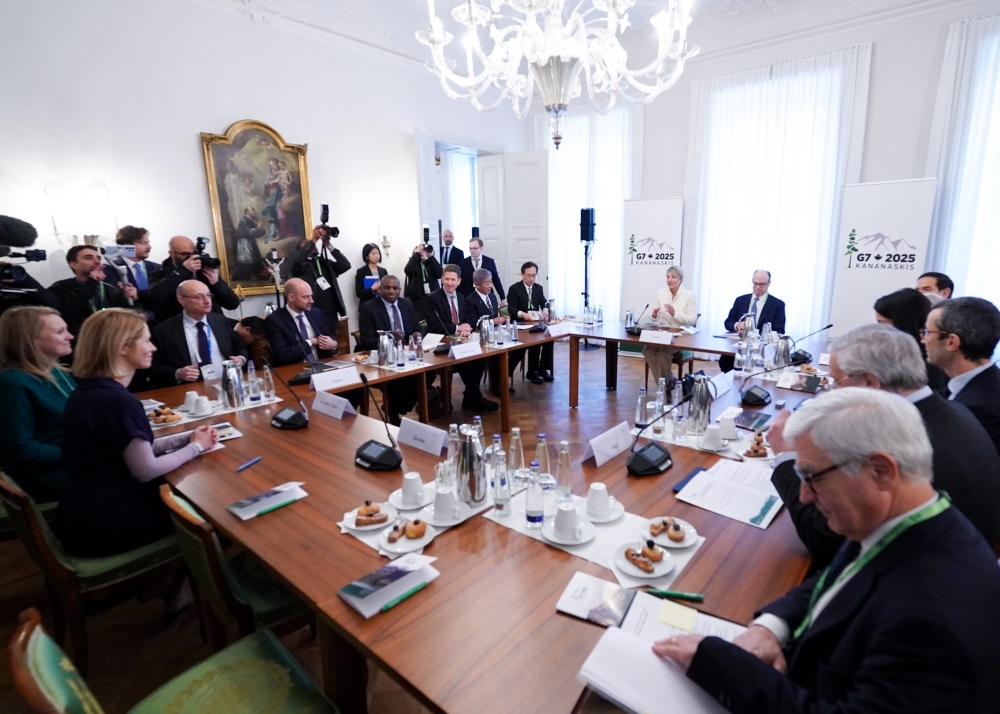G7
The G7 Foreign Minister’s Meeting
February 15, 2025


On February 15, during his visit to Munich to attend the Munich Security Conference, Mr. Takeshi Iwaya, Minister for Foreign Affairs of Japan, attended the G7 Foreign Ministers’ Meeting for approximately 90 minutesfrom 11 a.m. (local time). The overview of the meeting is as follows (Foreign Ministers of the G7 countries and EU High Representative attended. Mr. Sybiha, Minister for Foreign Affairs of Ukraine attended the session on Ukraine.).
- In the meeting, the ministers discussed the situation in Ukraine and the Middle East, which are pressing issues for the international community, as well as situation in the Indo-Pacific, Latin American affairs, and African affairs.
On the situation in Ukraine, which will soon mark three years since the Russia’s aggression, the ministers reaffirmed the G7's unwavering support for Ukraine and discussed further G7 cooperation for the realization of a just and lasting peace in Ukraine. They also shared concerns about the advancement of Russia-DPRK cooperation. Mr. Sybiha, Minister for Foreign Affairs of Ukraine attended the session on Ukraine, in which he discussed with his G7 counterparts.
On the situation in the Middle East, the ministers welcomed the increase in humanitarian aid following the ceasefire agreement in Gaza and reaffirmed the importance of advancing the implementing process of the agreement, including the release of hostages. They also reaffirmed their support for mediation efforts by the United States and the other countries. On the situation in Syria, they also agreed on their support for an inclusive transition process and reaffirmed the need to supportthe reconstruction and rebuilding of Syria led by the Syrian people.
On the situation in Syria, they also agreed on their support for an inclusive transition process and reaffirmed the need to supportthe reconstruction and rebuilding of Syria led by the Syrian people.
They also exchanged their views on situations in the Indo-Pacific and other regions, such as China and policies towards North Korea including on the nuclear and missile issues. On the Indo-Pacific,the G7 ministers concurred on their commitmentto a free, open and secure IndoPacific region, grounded in respect for the rule of law and sovereignty. Also, Minister Iwaya asked anew for understanding and cooperation from the other G7 countriesforthe immediate resolution of the abductions issue, and gained their support. - Minister Iwaya highlighted that the security of Europe and the Indo-Pacific is becoming increasingly inseparable and that it is more important than ever for the G7 to work together. On Ukraine, he reiterated the significance of achieving a just and lasting peace and his determination to continue assistance to Ukraine and stated that it is important to support rehabilitation and reconstruction from a medium- to long-term perspective. On the situation in the Middle East, he stressed the importance of achieving stability in the situation and stated thatthe G7 would play a role in medium-to long-term supportforrecovery and reconstruction, while utilizing Japan’s own initiatives including CEAPAD (Conference on cooperation among East Asian countries for Palestinian Development), a framework for support for Palestine in cooperation with East Asian countries.
- The ministers decided thatthey would continue their close communication and coordination.


